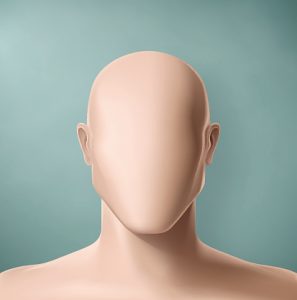Prosopagnosia, also known as face blindness or facial agnosia, is a rare neurological disorder characterized by the inability to recognize faces. The condition is often accompanied by other forms of recognition impairments such as a failure to recognize objects or places but sometimes it is just restricted to facial identity.
Depending upon the degree of impairment, some people with prosopagnosia may only have difficulty recognizing a familiar face. Others might be unable to discriminate between unknown faces while others may not be able to distinguish a face as being different from an object. In some cases, people with the disorder are unable to recognize their own face.
Prosopagnosia is not related to memory dysfunction, memory loss, impaired vision or a learning disability. Most of the documented cases of prosopagnosia are linked to an event that resulted in damage to the brain, such as a stroke, head trauma or a degenerative disease. In these cases, the condition is referred to as acquired prosopagnosia. In other cases however, the condition occurs in the absence of brain damage. These cases are considered developmental prosopagnosia and can occur at birth or at a very young age. In most cases, developmental prosopagnosia is genetic in nature.
There is still very little know about prosopagnosia and there is no cure for prosopagnosia. To compensate, those with the disorder are encouraged to develop strategies to help them identify individuals, such as recognizing voice cues or other unique physical attributes.
All content of this newsletter is intended for general information purposes only and is not intended or implied to be a substitute for professional medical advice, diagnosis or treatment. Please consult a medical professional before adopting any of the suggestions on this page. You must never disregard professional medical advice or delay seeking medical treatment based upon any content of this newsletter. PROMPTLY CONSULT YOUR PHYSICIAN OR CALL 911 IF YOU BELIEVE YOU HAVE A MEDICAL EMERGENCY.

